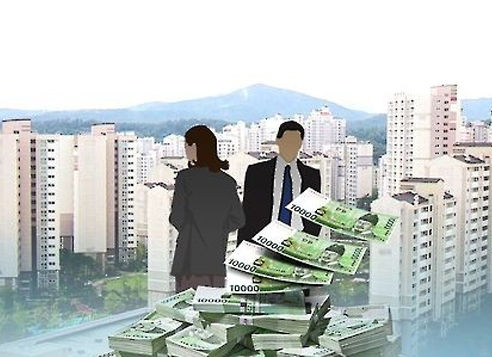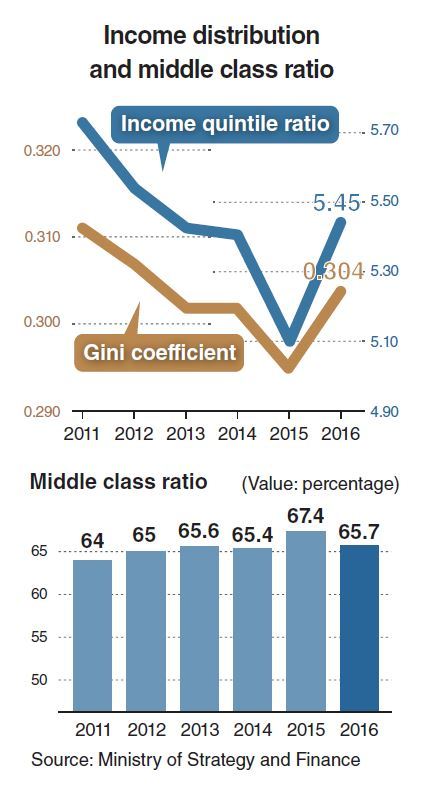Amid increasing income disparity, the Ministry of Strategy and Finance said Tuesday that Korea’s middle class accounted for 65.7 percent of the population last year, a 1.7 percentage point decrease compared to the previous year.
Although there is no established international standard in defining the middle class, Korea’s National Statistical Office defines the middle class as 50 to 150 percent of the country’s median income, in accordance to the standards of the Organization for Economic Cooperation and Development.
 |
(Yonhap) |
Based on this standard, the proportion of Korea’s middle class out of its total population was 64 percent in 2011, 65 percent in 2012 and 65.6 percent in 2013. It decreased to 65.4 percent in 2014. Although the middle class proportion slightly increased in 2015 to reach 67.4 percent, it dropped again last year to 65.7 percent.
The decline in the proportion of the middle class is largely attributed to the deterioration in the country’s income disparity, as the gap between the rich and poor is further deepening, the Finance Ministry said.

According to data from Statistics Korea, the median monthly income of a four-person household here was 4.39 million won ($3,928). Despite the government’s continued push to narrow the income distribution gap, the gap disparity shot back up last year after five consecutive years of decline.
The data showed the Gini coefficient of the average household’s total income was 0.353 last year compared to the previous year’s 0.341.
The Gini coefficient is a measurement of the income distribution ranging between zero and 1.The formula is based on citizens’ net income and is used to define the gap between the lower and upper class, with zero representing perfect equality and 1 representing perfect inequality.
The income quintile ratio, which divides the income of the upper 20 percent class by the income of the lower 20 percent class, also deteriorated for the first time in five years since 2011’s 5.73 ratio.
The worsening of the country’s income distribution is also being attributed to the fact that Korea’s spiking unemployment rate and growing competition in self-employment have led to lower earnings and a spike in low-income earners.
By Julie Jackson (
juliejackson@heraldcorp.com)









